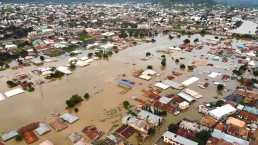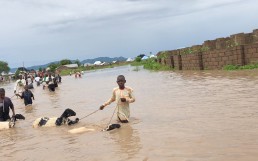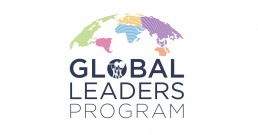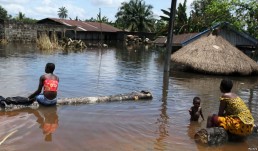TUITION FREE PROJECT MANAGEMENT COURSE WITH OPEN UNIVERSITY UK
Calling all aspiring Project Managers – Apply now for a tuition FREE Project Management course
We are excited to announce a unique merge-collaboration between resources and professionals of the Open University UK and TeamGantt, a leading Project Management software company in the US, to offer a cutting-edge project management course on DEXA.
What is Project Management?
Project management is the process of planning, organizing, and overseeing the execution of a project from start to finish. It involves defining project goals, identifying tasks and resources needed, creating a timeline, and ensuring that the project is completed on time and within budget.
How much do Project Managers earn?
In terms of salary, project managers in the tech industry earn a good salary, particularly those with experience and certifications. According to data from Glassdoor, the average base salary for a project manager in the tech industry in the United States is around $98,000 per year, with the potential to earn more through bonuses and other incentives. However, salaries can vary depending on location, company size, and other factors.
This is why we are offering this tution free Project Management course
This opportunity is ideal for individuals with a strong interest in pursuing a career in project management and looking to gain a competitive edge in the field. The Project Management course will cover the latest industry trends and best practices, as well as hands-on experience with TeamGantt’s software.
Applications are now open for this exclusive program.
Eligibility Criteria
- Graduate or undergraduate who demonstrates strong evidence of strong interest in the project management course and pursuing a career in Project Management.
- Consistent access to a laptop or mobile phone
- Consistent access to strong data and network.
- Commitment to the time required for the program
- Must give pre-consent during application for DEXA to contact you via email and phone
- Applicants must be between 20 and Above
Don’t miss this chance to advance your career and learn from industry leaders.
APPLY HERE
SCHOOL ENTERPRISE CHALLENGE 2023 FOR TEACHERS WORLDWIDE (UP TO $20,000) IN PRIZES
The School Enterprise Challenge is a free educational programme that teaches business and life skills.
It supports teachers and students to plan and set up real businesses at their school.
From coming up with your own business idea to writing a business plan and actually launching your school business, we’ll support you the whole way!
The programme is open to all pre-primary schools, primary schools, secondary & high schools, technical colleges and out-of-school educational centres providing a formal qualification. However, the programme is not open to universities.
BENEFITS
- This year, there are 26 prizes available, each ranging from $180 up to $5000, prizes total up to $20,000
- Student and teachers benefit from experiential learning, students get practical experience running a real business, developing Entrepreneural skills and key life skills. And teachers are able to learn about business, bring academic subject to life through real life examples, develop teaching techniques and boost their CV
- School's achieve global recognition and join a growing network of schools from all over the globe that are committed to preparing students for the real world
ELIGIBILITY
- Open to all school's from all countries including pre-primary schools, primary schools, secondary schools and technical /vocational colleges
- Not open to universities
APPLY NOW
Dreams do come through.
Just like any other Nigerian youth Favor had big dreams and aspirations. Despite the numerous challenges and hardships faced in Nigeria, she refused to be a victim.
One day, she stumbled upon an organization called DO. At first, she didn't know what to make of it. But as she delved deeper, she realized that DO was more than just an organization. It was a movement of young people who were passionate about making a difference in Nigeria starting with their communities.
So her journey with DO began. She started executing projects through the organization and making impact in her own little way.
Her unwavering dedication to making a difference propelled her to become an active Grassroot development champion with DO.
In an interview with Favor Godswill, she shared her experience with DO and how it has helped her achieve her goals. "DO has been my wingman in my journey to becoming a grass root development champion, The organization's programs has equipped me with the skills and knowledge I need to make a positive impact in my community."
With the fully funded Chevening scholarship, Favor Godswill plans to further her education "I am grateful for the support I have received from DO and the opportunity to pursue my dreams," she said.
Young Nigerians like Favor Godswill face numerous challenges in accessing education and opportunities for growth and development. But with DO's help, they are breaking down barriers and making waves in their communities.
DO is committed to empowering young people to become leaders and change agents in their communities. And with 25 GDCs securing full international scholarships through DO, it's safe to say that the organization is making
a positive impact in the world.
Who knows? You could be the next GDC to secure a fully funded scholarship with our help.
To begin to making an impact today click here www.dotakeaction.org
DO GLOBAL LEADERS PROGRAM
 DO Global Leadership program is a three (3) months Incubator designed to empower you with the knowledge and experiences you need to discover yourself, develop your career trajectory, access and position yourself for opportunities, hone your leadership skills and become a change maker in your community and an influential leader on the global stage. This program is designed to enable you to navigate the international landscape expertly, create cross-culture connections, and foster growth for businesses and communities in your nation, Africa and worldwide.
DO Global Leadership program is a three (3) months Incubator designed to empower you with the knowledge and experiences you need to discover yourself, develop your career trajectory, access and position yourself for opportunities, hone your leadership skills and become a change maker in your community and an influential leader on the global stage. This program is designed to enable you to navigate the international landscape expertly, create cross-culture connections, and foster growth for businesses and communities in your nation, Africa and worldwide.
Every year, DO selects and invites active community champions to develop and execute projects in their communities. For the period of this fellowship, the Changemakers learn through engagement, training, group work and networking to advance their activities and projects.
The sole objective of the programme is to strengthen Young leaders and make a difference in the lives of our communities by developing the combination of knowledge, skills, values, and motivation of the changemakers to foster and implement citizens-driven solutions.
The programme was designed to create a positive impact using the Sustainable Development Goals (SDGs).
The core components of the fellowship comprise parallel training in experiential learning, leadership development, inclusion, innovation and management framework.
BENEFITS
- Three months of self-paced Learning, Career Mapping, Opportunities & Networking, Influencing & Thought Leadership, Personal Development, Sustainable Development and Community Leadership.
- Local and Global opportunities; Program Participants will gain access to tailor-made Jobs, Careers, Scholarships, and Conference Opportunities that set them up for success.
- Letter of recommendation and administrative support; You have access to Letter of Recommendation / Reference, CV review and other ancillary support you need to thrive in your career as an alumni of DO Global Leaders Fellowship
- Execute a Community Project; During the program, you will organize a community impact project that will enable you to make a difference in Community and position you as a Leader and changemaker.
- Social support and networking; Meet and Network with prospective mentors, and attend fun events that enable you to meet and network with smart and interesting people.
- Download resources, access freebies and rewards; Download and access valuable resources to enable you to thrive as a Global leader and lead a successful career. Get discounts, and win mini-grants, and freebies from our partners.
SELECTION CRITERIA
The selection panel will use the following criteria to evaluate applications of the candidates:
- Demonstrate interest in becoming a Leader. You want to be a force for good and change in your Community or Nation.
- Desire to become an influential figure and powerful force in your industry or sector in the near future
-
Desire to Improve your economic condition, access local and global job or internship opportunities or want to build a stable career.
-
You want to access and leverage local and global opportunities and networks such as Scholarships, conferences etc.
ELIGIBILITY
The Fellowship is open to emerging changemakers who are:
- Between the ages of 18 and 35 at the time of application.
- Citizens and residents of Nigeria, Ghana, Senegal, Mali at the time of the programme.
- Passionate about solving challenges in their communities.
- Available to attend both online and on-site activities of the programme.
- Proficient in speaking, reading, writing and understanding the English language
HOW TO APPLY
To apply for the DO Global leaders program, please complete and submit the application form. The application requires that you write short essays and to also apply to be a Global Development Champion.
APPLY NOW
Gain the knowledge, opportunities and network you need to lead a successful career, access opportunities, become a global leader in your field and most importantly shape the future of your community, nation, Africa and the world.
PROVIDUS BANK SME PROGRAM 2023 FOR NIGERIANS
In order to improve the capacity of Nigerian business owners and give them the skills needed to develop long-term strategic plans that will transform their companies and boost profitability, ProvidusBank and Enterprise Development Centre developed the SME Program.
ProvidusBank SME Program 2023 for Nigerians Benefits
This program is designed to help businesses achieve the following:
- Develop a growth plan for their businesses
- Develop the leadership capacity of the participants to effectively lead their teams
- Clearly define the value proposition of your business
- Implement structures that ensure long-term sustainability
- Develop a ‘go-to-market’ strategy for your products and services
- One-on-One Business Advisory to address company-specific challenges
- Interact with like-minded entrepreneurs which enables sharing ideas and industry best practices
- Establish a network of contacts for business and personal development
How to apply for ProvidusBank SME Program 2023 for Nigerians
Apply Now: ProvidusBank SME Program 2023 for Nigerians
In order to improve the capacity of Nigerian business owners and give them the skills needed to develop long-term strategic plans that will transform their companies and boost profitability, ProvidusBank and Enterprise Development Centre developed the SME Program.
ProvidusBank SME Program 2023 for Nigerians Benefits
This program is designed to help businesses achieve the following:
- Develop a growth plan for their businesses
- Develop the leadership capacity of the participants to effectively lead their teams
- Clearly define the value proposition of your business
- Implement structures that ensure long-term sustainability
- Develop a ‘go-to-market’ strategy for your products and services
- One-on-One Business Advisory to address company-specific challenges
- Interact with like-minded entrepreneurs which enables sharing ideas and industry best practices
- Establish a network of contacts for business and personal development
How to apply for ProvidusBank SME Program 2023 for Nigerians
Step 1 – To be Eligible for the program, the applicant must be:
- Business Owner must be a citizen or legal resident of Nigeria.
- The Business must be based and registered with the CAC in Nigeria.
- The Business must be for-profit from any sector.
- Applicant must be available to commit to the training schedule once accepted
- Operated for at least 5 years
- Sales/turnover of at least 25 – 50 million naira
- Keep Financial Records
Step 2 – Register
Click on Apply now at the button of the page to start your Application.
Step 3 – Complete Application
Once you have successfully registered, log in and start the application. To return to your application, click the “Save And Continue” button (at the bottom of any stage) and come back to it at any time. Once you are done with your application, click on the “Submit” button at the end of the form to send it to us. You can submit only ONE application.
Step 4 – Keep Informed
Constantly check the PROVIDUSBANK SME Program ‘News and Update’ tab for regular updates.
News and Information
Application starts: June, 1 2023
Applications Closes: June, 30 2023
APPLY NOW
DO GLOBAL LEADERS PROGRAM
ABOUT THE PROGRAM
REGISTER NOW
WHO IS THE PROGRAM FOR
-
You are a leader or interested in becoming a Leader. You want to be a force for good and change in your Community or Nation.
-
You have a desire to become an influential figure and a powerful force in your industry or sector in the near future.
-
Your want to Improve your economic condition, access local and global job or internship opportunities or want to build a stable career.
-
You want to access and leverage local and global opportunities and networks such as Scholarships, conferences etc.
Program Component and Benefits
3 Months of Self paced Learning
Attend eight(8) free masterclasses and 16 elective classes by industry leaders across the five(5) core thematic areas: Career Mapping, Opportunities & Networking, Influencing & Thought Leadership, Personal Development, Sustainable Development and Community Leadership.
Local and Global Opportunities
Program Participants will gain access to tailor-made Jobs, Careers, Scholarships, and Conference Opportunities that set them up for success.
Letter of Recommendation & Administrative Support
Applying for a scholarship, an opportunity or a Job? Get a Letter of Recommendation / Reference, CV review and other ancillary support you need to thrive in your career.
Execute a Community Project, Become a Grassroot Development Champion
During the program, you will execute a Community Impact project that will enable you to make a difference in your Community and position you as a Leader and changemaker.
Social Support & Networking
Meet and Network with prospective mentors, and attend fun events that enable you to meet and network with smart and interesting people.
Download resources, access Freebies & Rewards
Download and access valuable resources to enable you to thrive as a Global leader and lead a successful career. Get discounts, and win mini-grants, and freebies from our partners.
BECOME A GLOBAL LEADER
REGISTER NOW
DO Newsletter
Latest update and opportunities at DO you probably didn't know about.
Every day, we witness the impact of our collective efforts, and it is nothing short of awe-inspiring. Through your unwavering commitment and dedication, lives are being transformed, dreams are being realized, and communities are flourishing. It is because of your unwavering belief in our cause that we can continue to create meaningful change and make a lasting difference in the world.
Here's what We've Been Up To:
We've been working on some exciting initiatives to empower the Nigerian youth and create a positive impact in our communities. Here are a few:
Partnerships:
Our team has been actively involved and intentional about signing partnerships with organizations that understand our vision and goal to inspire the next 1 billion Indvidual's to take action in their communities.
We have sealed partnerships with the following organizations:
-The UN women
-The NYSC
-The University of FUT Minna
-The Association of Tiv Actors (ATA)
-The Ugwumba Center for Leadership Development
These are a few amongst others.
Community Projects:
Our team has been actively involved in community projects across Nigeria, focusing on education, skills development, and environmental sustainability. We believe in the power of local solutions and are dedicated to making a tangible difference in the lives of people.
Empowerment Workshops:
We recently organized a series of interactive workshops aimed at equipping individuals with essential life skills, such as leadership, communication, and critical thinking. One of those being the Women's Economic Empowerment through Affirmative Procurement (WEEAP) training program.
DO In partnership with the UN women has developed the
The WEEAP program specifically designed for selected African women in Mali, Senegal and Nigeria who are ready to take their skills to the next level. It's an ongoing three-weeks online training program, were the women incredible opportunity to learn from experienced procurement professionals. The curriculum covers a wide range of topics, including digital trends, social media hacks, affirmative procurement policies and strategies.
The program has a cost of $1500, but we had over 250 women on Full scholarships, which cover the full tuition fee, course materials, free data, a certificate of participation, administration, and offer mentorship opportunities along with a network of industry experts. All of these benefits are provided free of charge.
Inspiring Stories:
Through our website and social media platforms, we've been sharing inspiring stories of GDCs who have overcome challenges and achieved remarkable success and made impacts in their communities. These stories serve as a beacon of hope and motivation for others, showing that dreams can indeed be turned into reality.
Latest News and Updates:
Our website: www.dotakeaction.org
has been revamped to make it even more user-friendly and engaging. It's now easier than ever to explore our programs, access valuable resources, and stay up to date with the latest news and events.
Events for the month of June:
7th June Wednesday
World Food Safety Day
World Food Safety Day (WFSD) is celebrated on 7 June 2022 with an aim to draw attention and inspire action to help prevent, detect, and manage foodborne risks, contributing to food security, human health, economic prosperity, agriculture, market access, tourism, and sustainable development.
We aim to Create awareness on food safety and drive online conversation on food safety. Do well to engage by liking, commenting and reposting these. posts.
12th June Monday
World Day Against Child Labour
"Every year on June 12 the World Day Against Child Labor is observed to raise awareness of the plight of child laborers world-wide. Hundreds of millions of girls and boys around the world are affected.
In this regard we are advocating against child labor via social media. Do well to engage by liking, commenting and reposting these. posts.
14th June Wednesday
World Blood Donor Day
Every year countries around the world celebrate World Blood Donor Day. The event serves to raise awareness of the need for safe blood and blood products and to thank voluntary, unpaid blood donors for their life-saving gifts of blood. A blood service that gives patients access to safe blood and blood products in sufficient quantity is a key component of an effective health system.
We are Putting up a social media campaign to celebrate blood donors around the world and also encourage Nigerians to donate blood at least once a year. Do well to engage by liking, commenting and reposting these. posts.
17th June Saturday
World Day to Combat Desertification and Drought
Droughts are among the greatest threats to sustainable development, especially in developing countries in Africa but increasingly so in developed nations too. In fact, forecasts estimate that by 2050 droughts may affect over three-quarters of the world’s population.
That is why on this day we are set to raise awareness on the state of desertification and drought in the world and put up strong awareness on ways to combat drought and desertification.
To make this possible we Encourage GDCs to do a 2-minute video to propagate this day and what it stands for. Your content will be posted across all our online platforms.
20th June Tuesday
World Refugee Day
World Refugee Day is an international day designated by the United Nations to honor refugees around the globe. It falls each year on June 20 and celebrates the strength and courage of people who have been forced to flee their home country to escape conflict or persecution. World Refugee Day is an occasion to build empathy and understanding for their plight and to recognize their resilience in rebuilding their lives.
On this day we are raising awareness of the current topic of refugees and migration and pay a courtesy visit to refugee campaign to commemorate World Refugee Day.
26th June Monday
International Day Against Drug Abuse and Illicit Trafficking
The International Day against Drug Abuse and Illicit Trafficking as an expression of its determination to strengthen action and cooperation to achieve the goal of an international society free of drug abuse.
We need 20 passionate GDCs who are ready to execute the "No to pills and drug abuse project" in their communities and put out a strong social media advocacy on ways to prevent drug abuse in commemorating international day against drug abuse and illicit trafficking.
27th June 2023
Micro- Small and Medium-sized Enterprises Day
"Resilience and Rebuilding: MSMEs for sustainable development at the forefront of building back better and stronger from the impacts of the COVID-19 pandemic"
The United Nations General Assembly designated 27 June as “Micro-, Small, and Medium-sized Enterprises Day to raise awareness of the tremendous contributions of MSMEs to the achievement of the United Nations Sustainable Development Goals (SDGs), Medium-sized Enterprises Day.
On this day we raise awareness that focuses on how purpose-driven MSMEs and social entrepreneurship are at the center of contributing to inclusive growth, combating inequalities and building back better and stronger, especially during challenging times.
29th June, 2023
International Day of the Tropics
The International Day of the Tropics celebrates the extraordinary diversity of the tropics while highlighting unique challenges and opportunities nations of the Tropics face. It provides an opportunity to take stock of progress across the tropics, to share tropical stories and expertise and to acknowledge the diversity and potential of the region. the Tropics are a region of the Earth, roughly defined as the area between the tropic of Cancer and the tropic of Capricorn. Although topography and other factors contribute to climatic variation, tropical locations are typically warm and experience little seasonal change in day-to-day temperature.
We will Put up and educational content on social media on the importance of the tropics and the need to reserve it by stopping deforestation in the tropics. Do well to engage by liking, commenting and reposting these. posts.
30 June 2023
International Day of Parliamentarism
In these times of uncertainty and anxiety, people are looking to their parliaments to respond with actions that will lead to a better future. Involving the community in decision-making through effective public engagement can help ensure that parliaments respond in ways that meet people’s expectations and aspirations. Simply put, better parliamentary engagement further nurtures public trust in governance, and thus stems the rise of authoritarianism.
On this day we would Pay a courtesy visit to the house of representative to understand better how Nigeria parliament works and how we can engage with them.
Opportunities for You:
Here is an amazing opportunity to check out;
Calling all African female entrepreneurs! Position your business for global success with the Women's Economic Empowerment through Affirmative Procurement (WEEAP) training program. Join the three-week online course put together by the UN women in collaboration with DO. Learn from experts, gain vital skills in digital trends, social media, and procurement strategies. Full scholarships available, including mentorship and industry networking. Limited slots available don't miss out! Sign up now:
Registration for WEEAP Cohort 2 is open
Apply Now
Link to apply: https://dotakeaction.org/unwomen/
Call to Action:
We value your voice and contributions immensely. Here's how you can get involved and help us make an even greater impact:
Follow and Engage:
Connect with us on social media Platforms.
Website: https://dotakeaction.org/
Instagram: https://www.instagram.com/dotakeaction/?hl=en
Facebook: https://www.facebook.com/dotakeaction/
LinkedIn: https://www.linkedin.com/company/dotakeaction/
Twitter: https://www.twitter.com/do_takeaction
Like, comment, share posts to spread the word and inspire others to join the movement.
Volunteer and Collaborate:
We always welcome passionate individuals who are eager to make a difference. If you have ideas, skills, or drive to contribute, we'd love to hear from you. Let's join forces and create lasting change together.
Stay Connected:
Make sure to regularly visit our website and follow us on social media to stay updated on the latest news, events, and opportunities.
Your commitment to empowering your communities through DO is truly inspiring, and together, we're building a brighter future.
APPLY NOW: Maltina Teacher of the Year Award 2023 for Nigerian Teachers
 Maltina Teacher of the Year Award 2023 for Nigerian Teachers
Maltina Teacher of the Year Award 2023 for Nigerian Teachers
The Maltina Teacher of the Year Award is intended to recognize, honor, and reward outstanding teachers in Nigeria.
The Maltina Teacher of the Year program, which is supported by the Federal Ministry of Education and other education partners, has recognized a total of 181 teachers since its beginning.
Applications for the Maltina Teacher of the Year Award 2023 are currently being accepted.
Details for the Maltina Teacher of the Year Award 2023
The Maltina Teacher of the Year Award 2023 aims to honour and commend exceptional teachers in Nigeria.
- This initiative is open to teachers in all secondary schools nationwide. Each state, including the FCT, will have its champion, from which the overall winner will be selected.
- State Champions from the 36 States and the FCT will be recognized and rewarded, with National Winners chosen from these State Champions after further evaluation.
Maltina Teacher of the Year Award 2023 Eligibility
To be eligible for the 2023 Maltina Teacher of the Year Award, applicants must meet the following criteria:
- Must not have been a former state champion within the past 3 years.
- Must be below the age of 55.
- Must currently be teaching in a public or private secondary school.
Maltina Teacher of the Year Award 2023 Reward
The award will be given to selected participants in this category:
APPLY NOW: Maltina Teacher of the Year Award 2023 for Nigerian Teachers
Maltina Teacher of the Year Award 2023 for Nigerian Teachers
The Maltina Teacher of the Year Award is intended to recognize, honor, and reward outstanding teachers in Nigeria.
The Maltina Teacher of the Year program, which is supported by the Federal Ministry of Education and other education partners, has recognized a total of 181 teachers since its beginning.
Applications for the Maltina Teacher of the Year Award 2023 are currently being accepted.
Details for the Maltina Teacher of the Year Award 2023
The Maltina Teacher of the Year Award 2023 aims to honour and commend exceptional teachers in Nigeria.
- This initiative is open to teachers in all secondary schools nationwide. Each state, including the FCT, will have its champion, from which the overall winner will be selected.
- State Champions from the 36 States and the FCT will be recognized and rewarded, with National Winners chosen from these State Champions after further evaluation.
Maltina Teacher of the Year Award 2023 Eligibility
To be eligible for the 2023 Maltina Teacher of the Year Award, applicants must meet the following criteria:
- Must not have been a former state champion within the past 3 years.
- Must be below the age of 55.
- Must currently be teaching in a public or private secondary school.
Maltina Teacher of the Year Award 2023 Reward
The award will be given to selected participants in this category:
Winner
- Cash prize: 6.5 million naira
- Fully equipped block of classrooms or computer laboratory
- Capacity development training
1st runner-up
- Cash prize: 1.5 million naira
2nd runner-up
- Cash prize: 1.25 million naira
State Champions
- Cash prize: 500,000 thousand naira
Maltina Teacher of the Year Award 2023 Required Documents
To apply, candidates must be ready to submit the following documents;
- Birth certificate/Sworn affidavit of age
- Teachers Registration Council Certificate
- Valid ID (Permanent Voters’ Card, International Passport, National ID Card, Driver’s Licence)
- Credentials / Certificates
- Passport Photograph 5cm X 5cm
- Awards and Testimonials
Maltina Teacher of the Year Award 2023 Method of Application
Each participant are expected to fill out the form online or download the form and scan to maltinateacheroftheyear@heineken.com.
Kindly click the button below to apply.
Deadline: July 21, 2023
Apply here!
Flood Crisis in Nigeria
Nigerians are no strangers to flooding. In some parts of the country, flooding is an annual event. But the intensity varies from one year to the next. In some years, the effects are minimal, and in others, devastating. The 2022 floods have caused massive damage, like those experienced in 2012 which affected over 7.7 million people in 32 out of 36 states were affected. The recent floods have done more damage.
The Nigeria Hydrological Services Agency, (NIHSA) has in its prediction of the 2022 Annual Flood Outlook, (AFO), predicted that 233 Local Government Areas (LGAs) in 32 STATES of the Federation and the FCT fall within the Highly Probable Flood Risks Areas. The overall aim of the prediction was to sensitize the nation, particularly planners, decision and policymakers, farmers, stakeholders, and the general public on the need to embark on preventive measures to improve safety and reduce potential damages to lives and properties, as well as increase enlightenment and sensitization campaigns for better preparedness on flood mitigation and management, particularly in the flood risks zones all over the country. However, their warning went unheard.

Causes of Flooding in Nigeria
There are different types of flooding:
- Fluvial flooding: this occurs when rivers overflow their banks.
- Coastal flooding: this occurs when water from the marine environment submerges low-lying adjoining lands.
- Pluvial flooding: this occurs due to intense, heavy rains.
In Nigeria, the three types of flooding are interrelated because the peaks of all three flooding types can coincide seasonally. Some of the principal causes of flooding in Nigeria are rapid urbanisation, poor spatial planning, and poor solid waste management, including drainage systems being used as dump sites.
The rapid population growth combined with urbanization and poor spatial planning means that people are building on flood-prone areas such as river banks, wetlands, and low-lying areas. Another consequence of poor spatial planning is that stormwater and drainage systems are built that aren’t fit for purpose. In many of Nigeria’s cities, the stormwater systems are inadequate to handle flooding peaks. As a result, communities living downstream are sometimes flooded.
Poor solid waste management is a key contributor to the problem of flooding. Often, drainage systems are used as dump sites, blocking the flow of water.
Another factor has been a change in rainfall patterns in the country, particularly an increase in extreme events. Rainstorms lasting up to five days are becoming more common. And it’s predicted that they will increase due to climate change. These extreme rainstorm events cause serious flooding.
The government shares the blame for not completing the Dasin Hausa Dam in Adamawa State, north-east Nigeria which was supposed to contain the release of excess water from the Lagdo Dam in Cameroon, which often contributes to flooding in Nigeria. The dam has remained uncompleted for more than 40 years.
Many of the rivers in Nigeria are poorly managed and regulated. Siltation of major rivers such as the River Niger, as well as the removal of vegetation from river banks and wetlands for agricultural purposes, are all outcomes of poor water resources management which have also contributed to flooding.

The Overarching Consequences of Flooding in Nigeria
The most important consequences are socioeconomic, health-related, ecological, and cultural.
Socio-economic consequences include the loss of lives, emotional and psychological distress, and destruction of property, social amenities, and infrastructure worth billions of naira.
Media reports (quoting national authorities), as of 18 October, have reported 603 fatalities, over 2,400 injured, nearly 1,303,000 displaced people, and a total of more than 2,504,000 affected people across the country. In particular, the Bayelsa State is the worst affected, with around 700,000 either displaced or affected people. About 203,400 houses are partially or fully damaged.
The flooding crisis has led to cholera outbreaks of 2.4 case fatality in 31 states of the federation. Data from Nigeria Centre for Disease Control (NCDC) suggests about 10,745 suspected cholera cases and 256 deaths. In the northeastern states – Borno, Adamawa, and Yobe – there are 7700 reported cases of cholera, and 324 deaths with 4.5% case fatality.
The flooding crisis has socio-economic implications for Nigeria as a whole.
First, economic activities in the affected areas have been shut down; this will increase the economic crisis in the country and throw more people into poverty.
To make matters worse, the GDP of Nigeria will be at its lowest, because oil-rich states in southern Nigeria are the worst hit by the flooding. And given that oil accounts for about 90% of Nigeria’s forex revenue and over 6% of its GDP, the Nigerian economy will be further impacted negatively.
Agricultural states affected by flooding like Benue, will not be able to produce food, further exacerbating the food inflation in the country.
The literacy level of children in affected areas will drop as they will not be able to attend school, thereby impacting their economic capacity and contribution in years to come.
Do we talk about the billions Nigerians have lost from damaged houses, properties, businesses, and public infrastructures and the money that will go into building new infrastructures and rehabilitating the survivors?
With all these woes bedeviling Nigeria, you would think Nigeria contributes a large chunk to global climate change. On the contrary, Nigeria contributes less than 1% of the world’s global emissions, yet it is ranked in the bottom 20% of countries to be impacted by climate change.
However, this is just a foretaste of things to come if we don’t Take Action to mitigate the effects of climate change.
What We Do at DO
DO Take Action stands in solidarity with everyone experiencing the grievous devastating impact of the flooding and we reaffirm our commitment to supporting victims of the flood.
To that effect, we have launched a relief project, “Donate with DO” to send relief materials like tents, sleeping mats, foodstuffs, mosquito nets, clothes, sanitary pads, toiletries, vaccines and drugs, and money to survivors of the flooding.
We hereby call for donations and collaborations from well-meaning individuals (home and abroad), philanthropists, concerned multinational companies, and the international community, to help us rapidly scale up to address the massive humanitarian needs in the flood-affected areas.
We remain committed to partnering with and alongside government, international organisations, and community organisations that are working to mitigate the effect of flooding and to support the victims of flooding, by spreading awareness of the impact of flood, educating the general public on flood mitigation as well as gathering relief materials to be sent to survivors.
However, beyond the intervention project, DO Take Action has developed actionable frameworks to mitigate the effects of climate change in Africa and ensure a better Africa in the future.
Click here to see how you can TAKE ACTION.
Press Release: Donate with DO for Flood Crisis in Nigeria
When we talk about the danger of climate change, you just have to take a look at the fatal flooding in Nigeria and understand the magnitude of the effect climate change can have on all of us. Since June 2022, Nigeria has been experiencing torrential rainfall as a result of climate change. The heavy rainfall, coupled with the release of excess water from Cameroon’s Lagdo Dam, ultimately led to flooding in Nigeria. As of October 20, 2022, the resultant flooding has claimed over 600 lives, displaced more than 1.4 million people and affected over 2.5 million, injured 2,400 people, and led to a spike in cases of waterborne diseases. The most affected states are Anambra, Bayelsa, Cross River, Delta, Rivers, and Abuja. Bayelsa is undoubtedly the worst hit with over 700,000 displaced persons. The flooding crisis has led to cholera outbreaks of 2.4 case fatality in 31 states of the federation. Data from Nigeria Centre for Disease Control (NCDC) suggests about 10,745 suspected cholera cases and 256 deaths. In the northeastern states – Borno, Adamawa, and Yobe – there are 7700 reported cases of cholera, and 324 deaths with 4.5% case fatality.

Socio-economic effects of the flooding crisis in Nigeria
The flooding crisis has socio-economic implications for Nigeria as a whole.
First, economic activities in the affected areas have been shut down; this will increase the economic crisis in the country and throw more people into poverty.
To make matters worse, the GDP of Nigeria will be at its lowest, because oil-rich states in southern Nigeria are the worst hit by the flooding. And given that oil accounts for about 90% of Nigeria’s forex revenue and over 6% of its GDP, the Nigerian economy will be further impacted negatively.
Agricultural states affected by flooding like Benue, will not be able to produce food, further exacerbating the food inflation in the country.
The literacy level of children in affected areas will drop as they will not be able to attend school, thereby impacting their economic capacity and contribution in years to come.
Do we talk about the billions Nigerians have lost from damaged houses, properties, businesses, and public infrastructures and the money that will go into building new infrastructures and rehabilitating the survivors?
With all these woes bedeviling Nigeria, you would think Nigeria contributes a large chunk to global climate change. On the contrary, Nigeria contributes less than 1% of the world’s global emissions, yet it is ranked in the bottom 20% of countries to be impacted by climate change.
However, this is just a foretaste of things to come if we don’t Take Action to mitigate the effects of climate change.

Our Response
DO Take Action stands in solidarity with everyone experiencing the grievous devastating impact of the flooding and we reaffirm our commitment to supporting victims of the flood.
To that effect, we have launched a relief project, “Donate with DO” to send relief materials like tents, sleeping mats, foodstuffs, mosquito nets, clothes, sanitary pads, toiletries, vaccines and drugs, and money to survivors of the flooding.
We hereby call for donations and collaborations from well-meaning individuals (home and abroad), philanthropists, concerned multinational companies, and the international community, to help us rapidly scale up to address the massive humanitarian needs in the flood-affected areas.
However, beyond the intervention project, DO Take Action has developed actionable frameworks to mitigate the effects of climate change in Africa and ensure a better Africa in the future.
Click here to see how you can TAKE ACTION.
Signed:
Precious Ebere and Century Favour,
Co-Founders, DO Take Action.







